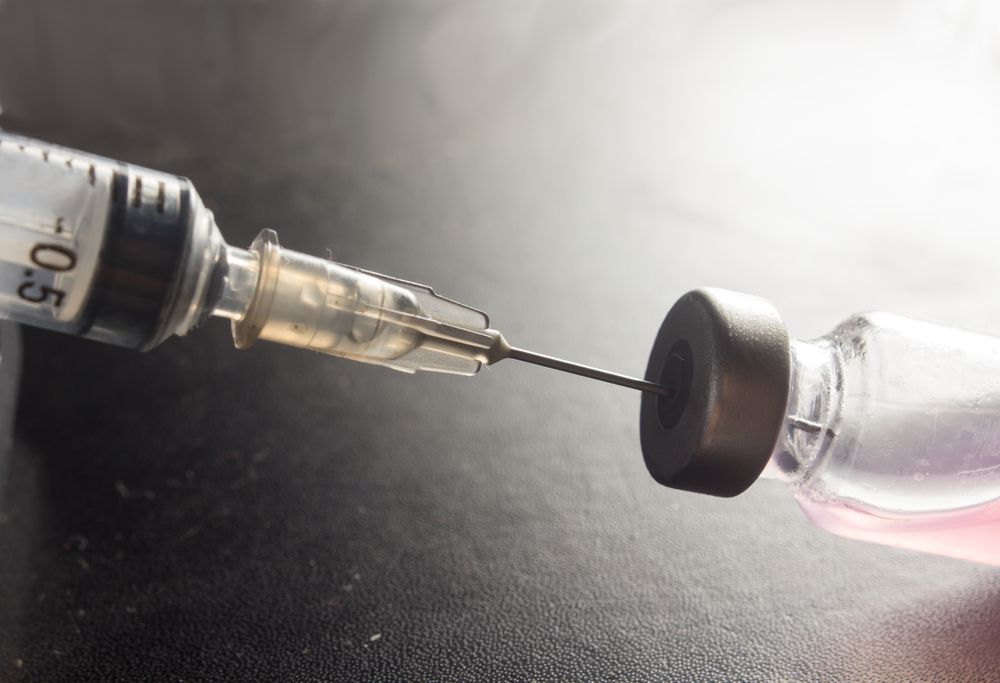Article
Vaccinate? In RA, That’s Still the Question
Should you immunize your patients with rheumatoid arthritis against viral infections that could pose a danger to their health?
©Peerayot/shutterstock.com

Should you immunize your patients with rheumatoid arthritis (RA) against viral infections that could pose a danger to their health? In some cases, RA itself may hamper the response to vaccines. In others, treatments that suppress the immune system may affect vaccine efficacy.
In the case of hepatitis B (HBV) vaccine, researchers say RA patients are less likely to be protected by the vaccine than people who don’t have RA.1
In a clinical trial reported at the 2015 annual meeting of the European League Against Rheumatism (EULAR), only a small number of RA patients responded to the HBV vaccine compared to a majority of controls. This suggests RA patients may still be at risk of HBV even after being immunized, so patients and clinicians need to take steps to reduce risk, Dutch researchers say.
In the trial, 47 RA patients and 156 healthcare workers were given the standard 3 shot regimen (0, 1 and 6 months) of HBVAXPRO-10. Immune response markers were measured after 28 weeks. Among the RA patients, 11% (5/47) responded to the vaccine, compared to 83% of the controls (129/156).
However, the study finds no difference in response among patients using DMARDs, TNF inhibitors, or rituximab (RTX).
In contrast, recent studies suggest that a vaccine against Streptococcus pneumoniae may be less effective in RA patients being treated with methotrexate (MTX) or combined tacrolimus (TAC) and MTX.
The first study, published in June in Arthritis Care & Research, finds that TAC monotherapy does not appear to impair response to the 23-valent pneumococcal polysaccharide vaccine (PPSV23) in patients with established RA.2
However, a study of 133 Japanese RA patients treated with MTX or TAC alone and as combo therapy, finds vaccine antibody production and function may be reduced in patients treated with TAC and MTX. The lowest responses were among patients on MTX monotherapy.3
Additionally, a 2014 meta-analysis of vaccine responses in RA patients suggests that MTX and RTX seem to lower responses to common immunizations in patients with RA -- while tumor necrosis factor-alpha (TNFα) blockers have no apparent effect. In that analysis, French researchers find that MTX lessens the response to pneumococcal vaccines and may also impair responses to seasonal flu shots, while RTX reduces responses to both.4
The Japanese researchers conclude “PPSV23 administration during ongoing TAC treatment should be encouraged for infection-prone TAC-treated patients with rheumatic diseases.”3
And the authors of the 2014 meta-analysis emphasize that, regardless of any treatment effects, vaccines still provide important protection against infection in RA patients.4
Both flu and pneumonia vaccines use inactivated viruses and pose no risk of viral reactivation. Studies also show no links between vaccination and worsening RA.
EULAR 2011 guidelines recommend that patients with RA receive both pneumococcal and seasonal flu vaccines. Many appear to be receiving them, but only after starting DMARD therapy, according to a report at the 2015 annual meeting in Rome.
A large retrospective study, encompassing almost 18,000 RA patients in a UK database treated with DMARDs between 2000 and 2013, shows that 62% of those over age 65 -– when the risk of pneumonia increases –- received at least 1 dose of pneumococcal vaccine.5 Of the 4,026 patients, 62% were immunized prior to starting DMARD therapy.
As for seasonal flu shots, 90% of the older patients (n=5851) received at least 1 dose of influenza vaccine, a majority of whom were immunized before DMARD treatment.
Among RA patients under age 65, 73% (n=8,299) received at least 1 influenza vaccination: roughly a third were vaccinated before DMARD use. Around 60% (n=4,026) received at least 1 pneumonia vaccination, 62% before starting DMARDs.
References:
1. Tilanus M, Rico B, van Daal CJ, Fransen J. Protection by hepatitis B vaccination of rheumatoid arthritis patients using biologicals. EULAR 2015; Rome: Abstract OP0167 DOI:10.1136/annrheumdis2015eular.3364.
2. Fischer L, Francis Gerstel P, Poncet A, et al. Pneumococcal polysaccharide vaccination in adults undergoing immunosuppressive treatment for inflammatory diseases - a longitudinal study. Arthritis Res Ther. 2015 Jun 6;17(1):151. [Epub ahead of print] doi:10.1186/s13075-015-0662-x.
3. Migita K, Akeda Y, Akazawa M, et al. Pneumococcal polysaccharide vaccination in rheumatoid arthritis patients receiving tacrolimus. Arthritis Res Ther. 2015 Jun 3;17(1):149. [Epub ahead of print] doi:10.1186/s13075-015-0662-x Open Access
4. Hua C, Barnetche T, Combe B, Morel J. Effect of Methotrexate, Anti–Tumor Necrosis Factor α, and Rituximab on the Immune Response to Influenza and Pneumococcal Vaccines in Patients With Rheumatoid Arthritis: A Systematic Review and Meta-Analysis. Arthritis Care & Research. July 2014;66(7):1016–1026. DOI: 10.1002/acr.22246 [Article first published online: 26 JUN 2014]
5. Costello R, Winthrop K, Pye SR, Dixon W. Vaccination uptake in patients with rheumatoid arthritis treated with disease-modifying anti-rheumatic drug therapy: a retrospective cohort study using UK primary care electronic medical records. EULAR 2015. Rome. OP0301. DOI: 10.1136/annrheumdis2015eular.1833.




